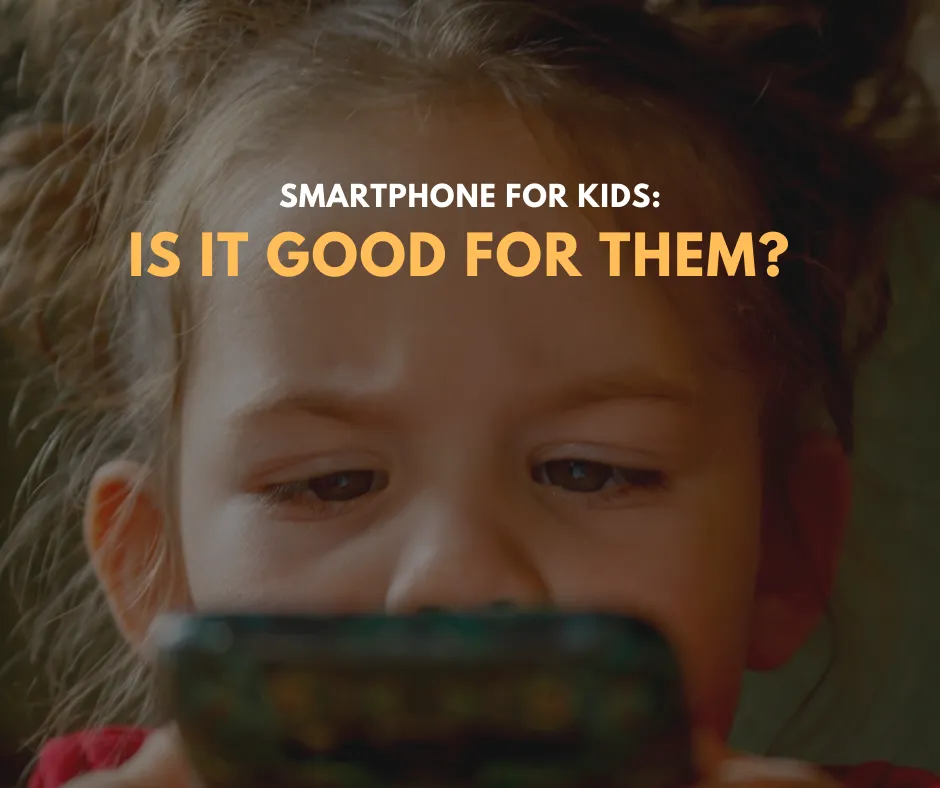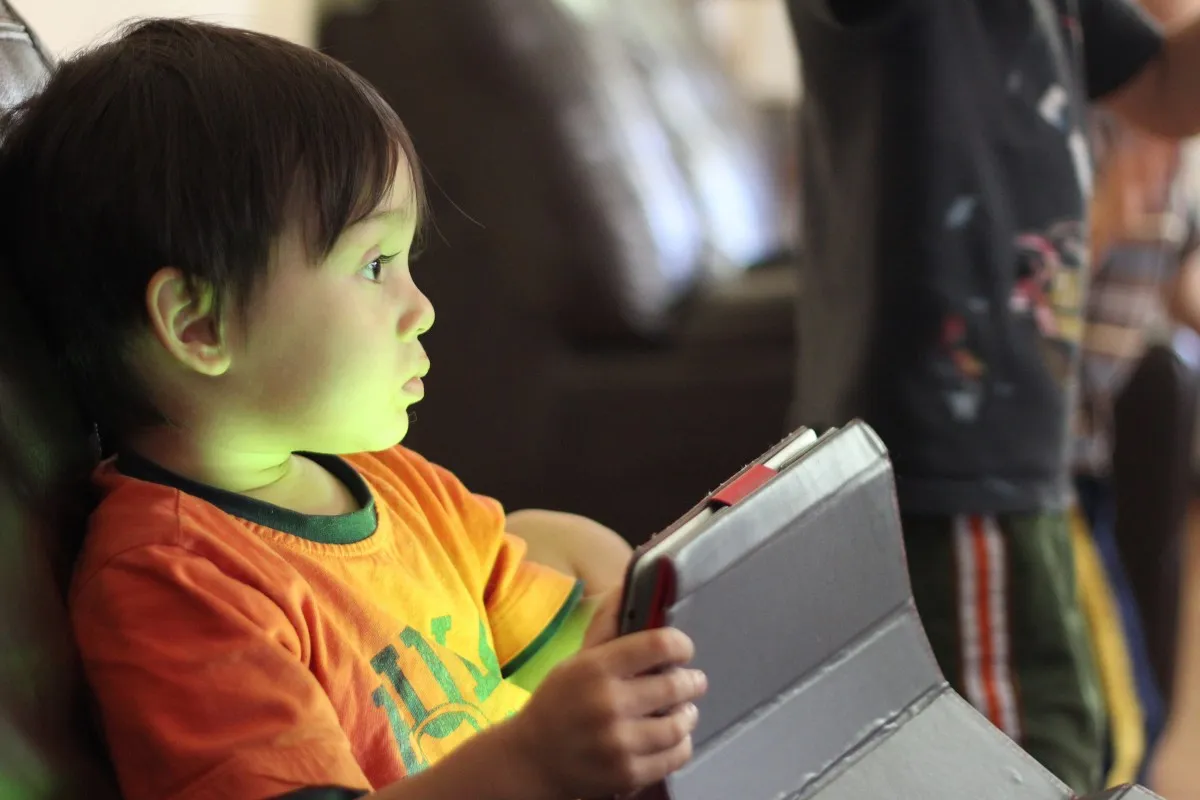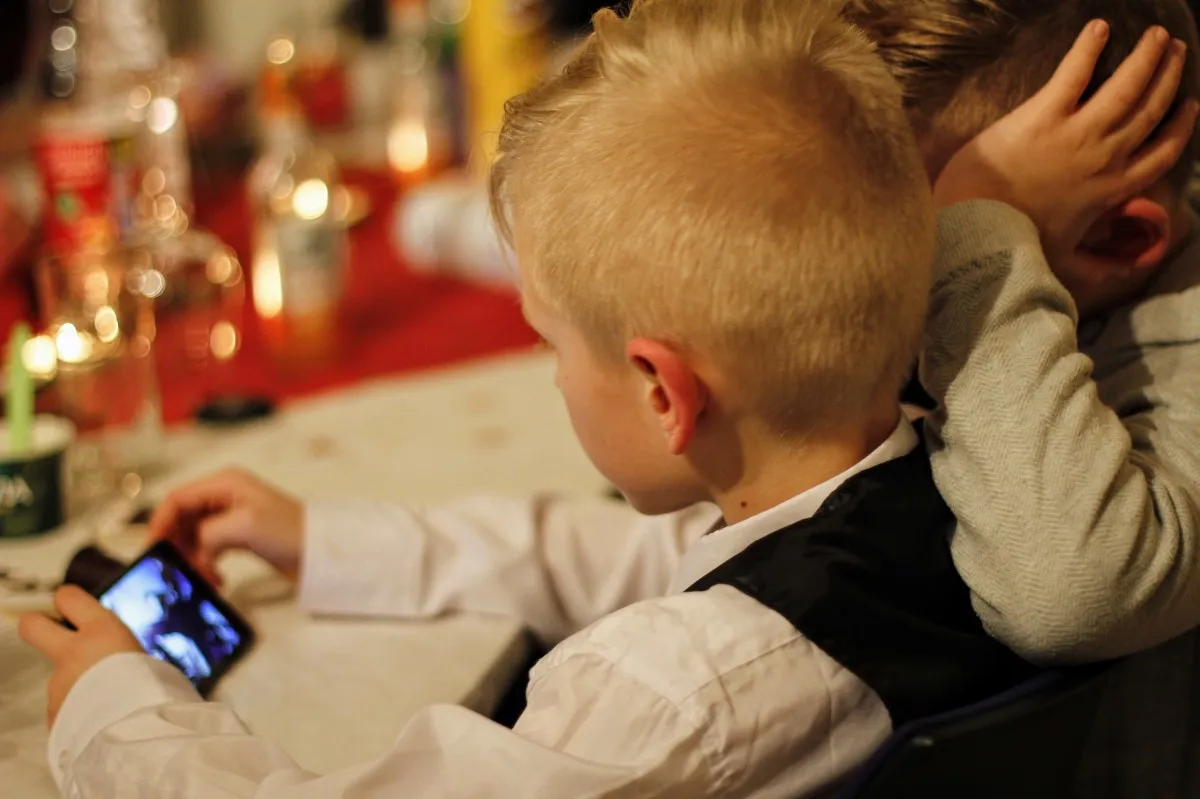
Earlier today, I woke up, and I was greeted good morning by my nephew. Well, it was suspicious for me. We usually do not greet each other and barely talk to each other first thing in the morning. I asked him to tell me what was going on. He got up to charge his phone and ignored me. It dawned on me that his voice sounded so sleepy and lazy. He admitted he did not sleep all night for streaming videos on YouTube and playing Mobile Legend. It is not the first time this had happened. My nephew is a seven-grader; he is only 13, and he first got a phone just recently. He is losing all the sleep in the world for stuff he only sees on the surface of his smartphone screen. And not that sleep is the only thing there is to lose.
According to statistics, 53% of youngsters under the age of 11 own a smartphone. Not to mention that we even exposed toddlers to technology. According to a study presented at the Pediatric Academic Societies in San Diego, California, most children were already using mobile devices by two years old. Their use increased as they grew older. How have these children been exposed to such devices at such an early age? Is it merely for fun and enjoyment, or is it genuinely for academics? Or is it because we allow them to that they use it in this manner? Is this truly the new normal, and do we have to accept it? No, it doesn't. It's 2021, and there are better ways to use our cell phones. We set our norms and standards, which should be holistically nothing else but for our good, especially the children.
Smartphones for children: a boon or a curse? Technology has advanced to the point where it no longer needs to keep up with us, but we must keep up with it. It influenced us on how we live. Due to the pandemic, we study online, using our phones and other devices. We stay indoors to avoid the COVID-19 virus, and we do practically everything over the phone. It is, indeed, effective for us. But what about the children? One good reason why we leave a phone in a child's possession is for communication, especially during crises. Just a ring or a text saying, "Ma, I'm here at Jane's" or "Dad, I'm at the coffee shop, fetch me by 5." And you'll be wondering, "Who the hell is Beth, and whose coffee shop?"

Aside from that, smartphones can be lifelines for youngsters in crises. When their child brings a phone with them, parents and grownups experience a sense of protection and security. There are numerous other reasons and benefits for providing smartphones to children and teenagers, including digital literacy, self-sufficiency, immediate academic resources, real-time virtual interaction with friends, and enjoyment. Some people, usually the wealthy, have more than one gadget for themselves.
So, where do the cards fall? When did your mother start telling you that your stomachache, muscle cramps, or other symptoms are due to excessive smartphone use? (Not scientific) The majority of today's youth may assume that utilizing these smartphones and devices is "rad." Hold for a second, it is rad, and by that, I mean radiation. Consider how much radiation exposure results in diseases. Our phones and other electronic devices produce radiation, but it is not too excessive. Excessive exposure to it is a common health danger classified as a carcinogen by the World Health Organization, which can cause cancer in people.
Is it worth it to have a lasting consequence like eye damage? Long durations of looking at the screen of our computers or phones can cause eye strain and provoke migraines and headaches. Another downside is a lack of sleep. According to a recent study, 60% of parents allow their children to use gadgets without careful supervision. Furthermore, what about non-external damages? We may become engrossed with cell phones if we do not understand how to use them properly. How much more can the youngsters get lost if we can?

The internet and technology can direct kids to different websites, games, films, social content, search engines, and other resources. But wait a minute. How far can the phrase "many more" go? The online world is vast, dazzling, and gloomy. Dark content, such as violent media, can induce changes in children's behavior, such as aggressive conduct, and it's even worse when they apply what they see because they're curious. The shreds of evidence may not be sufficient to elicit a moral panic. But it certainly warrants more investigation for everyone.
So, what are we going to do? We don't do anything until we decide not to accept this as the new normal. And we've made our decision. We build a better lifestyle for ourselves and our children by limiting screen time, reducing the negative aspects while allowing them to enjoy the positive aspects of using cell phones. How? We must be there for them and with them. We may become the evil guy, the killjoys, and villains of what they call pleasure. Yes, we are, but I would be called such things than lead a youngster to something that, if done too much, might injure him, to something that is superficially good but maybe permanently detrimental. The children are most vulnerable in this matter, so we have to educate them and ourselves.
Smartphones for children, in my opinion, are a benefit, not a curse. Examining the subject, maybe the questions don't want a yes or no answer, but rather to be responded to with conviction. Adults can be better than smart enough, and that we're not joking when we say it. We must accept that technology has advanced to this point. But we should not overlook the notion that we need to understand it. Smartphones for kids? That's rad, that's cool, that's a fad. That it comes at a price, the cost of our time and attention, our genuine care, love, and patience. A price too high to bear. Is a smartphone good for kids? I let you decide.
Readings
M. Sundus, The Impact of using Gadgets on Children
Melanie Pinola, How and When to Limit Kids' Tech Use
Michael Robb, Tweens, Teens, and Phones: What Our 2019 Research Reveals
Amy Williams, How Do Smartphones Affect Childhood Psychology?
Quentin Fottrell, Babies younger than 2 are using smartphones and tablets
Jean Twenge and W. Keith Campbell, Associations between screen time and lower psychological well-being among children and adolescents: Evidence from a population-based study
Charles Fain Lehman, Are Smartphones and Social Media Hurting Our Kids?
Photo Credit: Mirko Sajkov, Pxhere, and Pxhere
